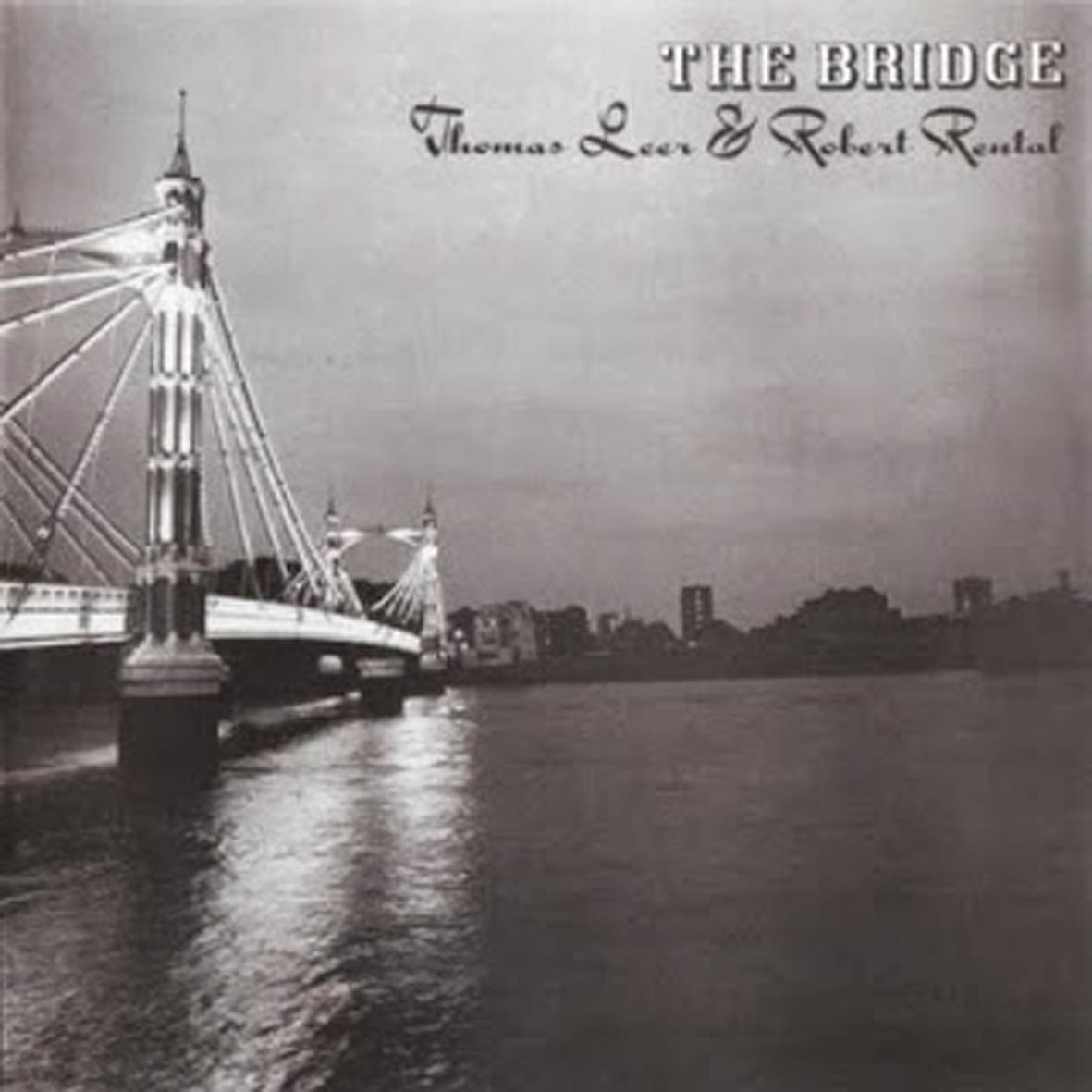 Synthpop pioneer Thomas Leer may have flirted with mainstream success in the '80s as one-half of Act (with Propaganda's Claudia Brücken), but he definitely traveled in some weirder circles as a young man, resulting in some rather interesting early career decisions.  For example, he followed his poppy and ground-breaking 1978 debut single ("Private Plane") with this full-length 1979 collaboration with aberrant fellow Scottish émigré Robert Rental on Throbbing Gristle's decidedly non-hit-minded Industrial Records.  While The Bridge has since faded into relative obscurity, both Leer and Rental were very influential figures at the time and several of these songs still sound wonderful and unique today.
Synthpop pioneer Thomas Leer may have flirted with mainstream success in the '80s as one-half of Act (with Propaganda's Claudia Brücken), but he definitely traveled in some weirder circles as a young man, resulting in some rather interesting early career decisions.  For example, he followed his poppy and ground-breaking 1978 debut single ("Private Plane") with this full-length 1979 collaboration with aberrant fellow Scottish émigré Robert Rental on Throbbing Gristle's decidedly non-hit-minded Industrial Records.  While The Bridge has since faded into relative obscurity, both Leer and Rental were very influential figures at the time and several of these songs still sound wonderful and unique today.
While "Private Plane" is certainly an appealingly catchy and moody bit of poppy post-punk, its status as a seminal moment in DIY culture stems more from Leer's process than the song's content, as he played and recorded the whole thing by himself in his bedroom (the hushed vocals were even purportedly inspired by the fact that his girlfriend was sleeping).  For his part, Robert Rental also recorded an excellent home-recorded debut single in 1978, the singular "Paralysis," which somehow blends an almost-sultry soul groove with machine noise and guitar squall, making it is easy to see how such an effort would have gained Throbbing Gristle's attention.  In fact, Rental is credited with fatefully turning both Chris Carter and William Bennett onto the EDP WASP synthesizer, which he prominently used on that 7".
Unusually, The Bridge is divided into two discrete, very different halves with the duo seamlessly trading vocal and instrumental duties throughout.  The first half occupies something of a logical middle ground between Leer's pop sensibility and Rental's quasi-industrial experimentation, yielding a handful of jittery, prickly, paranoid synthpop gems.  The best of the batch are the tensely propulsive "Monochrome Days" and the endearingly clunky and bloodless electro-blues of "Day Breaks, Night Heals."  Given the '70s-era synthesizers involved and the lo-fi recording (they borrowed an 8-track from TG), the songs necessarily sound a bit dated, but that is actually part of the appeal for me: the raw and quirky early days of synthpop were a lot of fun (Fad Gadget being another fine example).
Granted, a few of the other songs ("Attack Decay" and "Connotations") have not aged well, as they are a bit too primitive or one-dimensionally dark for my taste, but "Fade Away" stands out as another highlight.  It definitely lacks the poppiness of the side's other successful moments, but it is impressively weird and mechanized-sounding.  A lot of that is due to the duo's offbeat choice of instrumentation (all kinds of domestic appliances found their way onto the album), but they also used more conventional instrumentation in strange ways, like manually recording "percussion" loops with their synthesizers rather than using drum machines.
"Fade Away" proves to be the perfect segue into The Bridge's very different second half, as it foreshadows the duo's abandonment of song-craft in favor of abstract, industrial-damaged soundscapes and tape-loop experimentation.  Naturally, the household appliances remain a key constant, but the results are surprisingly musical, restrained, and divergent from either artist's solo work.  Of the four pieces, the warmly droning "Perpetual" stands out as the most beautiful and contemporary-sounding, but almost all are quite striking in their own ways.  In particular, "Interferon" sounds like it could be a lost classic of space-y electronic experimentation by Morton Subotnick or Silver Apples (albeit one with prominent accompaniment by a washing machine).  "The Hard Way In & The Easy Way Out" is also quite likable, conjuring up an immersively burbling and throbbing hum around the buried chatter of a television.
It is a bit of a shame that Leer and Rental never recorded extensively together again (though Leer did play on all of Rental's future solo releases), as their union was a rather visionary, synergistic, and fruitful one.  In fact, many regard The Bridge as one of the best albums that Industrial Records ever released and "Day Breaks, Night Heals" comfortably appeared alongside heavy-hitters like Can, Aphex Twin, John Cage, and Kraftwerk on Mute's epic Rough Trade: Electronic 01 compilation.  More importantly, The Bridge is the most substantial of the exasperatingly few existing documents of Robert Rental's recording career (he died in 2000), as he only surfaced again with the Double Heart 7" (1980), a very limited cassette, and as a member of The Normal (after meeting Daniel Miller at a TG show, naturally).  For his part, Leer was a bit more prolific and successful, but his recording career also came to a premature end, as he become so frustrated with record labels and Abba-sample-related legal troubles in 1988 that he completely abandoned music and vanished, though he eventually resurfaced in the early '00s and remains a very hip influence to name-check.
 
Read More

